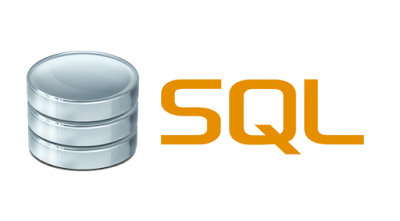What is Sql
Here we learn about important aspects of the structured query language, its importance, its use, and its relation with databases.
SQL is a domain-specific language used in programming and to handle data in a database management system. In simple words, it is used to communicate with databases. Writing and executing the way you render data from the database is called a query. The code you use to write the queries is a structured query language.
What is meant by domain-specific?
Here is a quick definition to help you understand domain-specific languages, but first you need to understand what a general-purpose language or GPL is, these are programming dialects that can be used to tackle a wide variety of problems using one of these languages. e.g C++, C#, Java, Ruby, Python, Rust.
domain-specific languages or DSL for short are created to work on a known problem they are often created within an organization that wants a way to define their solutions using a syntax that more closely matches their work model. DSLs are abstractions that make it easier to express a problem and define a solution. They can be used to better communicate between programmers and non-programmers because the syntax is typically more human-readable. Since DSLs can better guess at what you are trying to do then a GPL they are better able to check for common mistakes and misuses, a couple of examples of DSL are HTML and SQL there is a lot of other dsls out there but many of them are developed privately by companies and are never released publicly.
Why SQL is a domain-specific language?
Structured Query Language, is used to work with data in DB. It is used by every relational database management system, abbreviated DBMS, even if there are some slight degree differences across platforms. And it can not be used for any other purpose other than DB handling like other general-purpose languages.
SQL is easy to learn:
- It is not a programming language, it is a query language.
- It is almost close to simple English text.
Syntax:
Select Column_Name from Table_Name;
Use of SQL:
It is used to communicate with a database. According to ANSI (American National Standards Institute), it is the standard dialect for RDBMS(relational database management systems). SQL statements are used to perform tasks such as delete data, update data, retrieve data, and delete data from a database. These tasks are commonly known as CURD(create, update, retrieve, and delete).In the database world, you are interacting with DB that do not use traditional relational structures, most DBMS try hard to create query languages that look as similar as structured query language because it is so common in the database world. So, no matter what DB platform you want to work with, it will advance your career.
Major RDBMS:
There are many types of relational databases such as...
- Oracle
- MySQL
- Ms SQL Server
- PostgreSQL
- SQLite... etc
All the relational databases use SQL as there core language, but the syntax of each database is different to some extent. The names mentioned above are RDB (relational databases) and SQL is used in these RDBs to deal with the database. Both MySQL and MS SQL Server are widely used in enterprise database systems. MySQL is an open-source RDBMS and is offered by Oracle, while MySQL Server is a Microsoft product.
History of SQL:
It was first developed in the 1970s by IBM researchers Raymond Boyce and Donald Chamberlain. Now it is known as the Sequel, was created in 1970 following the publication of Edgar Frank Todd's paper, "A Relationship Model of Data for Large Shared Data Banks."




Highly recommended and aptly put site with such sheer knowledge and information. Kudos to the administrator
ReplyDeleteA good effort to make such a difficult aspect of DBMS, a piece of cake.
ReplyDeletereally appreciative
ReplyDeletegood effort. now that's what we call a fine job.
ReplyDelete